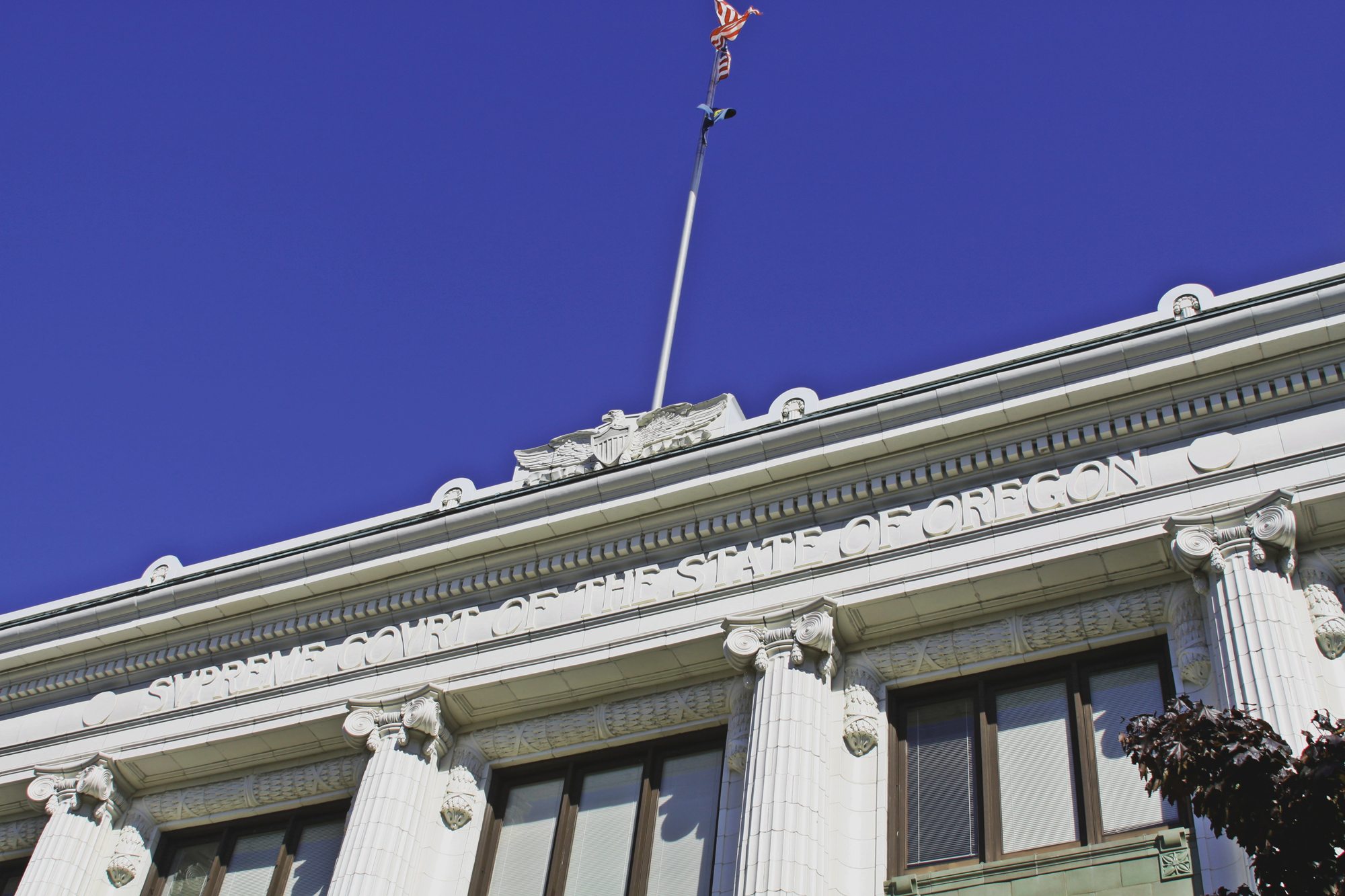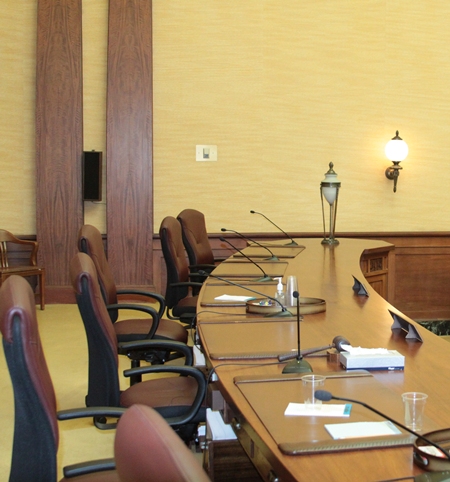Frequently Asked Questions About Oregon Appeals and Parole Cases
| How can a person challenge a criminal conviction in Oregon? | |||
| There are three ways to challenge a criminal conviction. The first two, appeal and post-conviction, are proceedings in state court. The third is habeas corpus, which is a federal court proceeding. | |||
| What is an appeal? | |||
| During a trial, a judge is required to make legal rulings on all sorts of things, like whether to grant a motion to dismiss the case, whether to grant a motion to suppress evidence and what instructions to give the jury about the law that applies to the case. Judges sometimes make mistakes, and those mistakes can harm a person’s ability to have a fair trial or to receive a lawful sentence in the event of a conviction. An appeal is a process for correcting any legal errors that harmed a person’s right to a fair trial or lawful sentence. An appeal can be taken from a court’s judgment in a criminal case or a court’s judgment in a civil case. An appeal may also be taken from an order issued by an administrative agency, such as the Department of Motor Vehicles or the Board of Parole and Post-Prison Supervision. | |||
|
Where is an appeal filed?
Almost all trials are conducted in the circuit court for the county in which the crime was alleged to have been committed. Some trials, however, are tried in municipal courts and justice courts. If the trial was conducted in a circuit court, then the appeal in almost all cases would be filed in the Court of Appeals, which is located in Salem. If the trial was conducted in a municipal court or a justice court, then the appeal would be filed either in the circuit court or the Court of Appeals, depending on whether the trial court was a court of record (a court in which the trial is recorded and a transcript can be prepared). Appeals from the decisions of administrative agencies may be filed in the Court of Appeals, but usually an administrative appeal must be completed first. When can an appeal be filed? In general, an appeal must be filed within 30 days after the judgment is entered into a record-keeping system called the trial court register. The time frame is different for some kinds of cases and administrative appeals. Anyone contemplating an appeal should consult with their attorney immediately after any court judgment or agency decision to ensure that all deadlines are met. What kind of issues can be raised in an appeal? In most cases, the Court of Appeals can review only the legal rulings that were made by the trial judge or the administrative agency. The Court of Appeals generally cannot re-weigh the evidence and say that the jury (or the judge in a bench trial) should have believed different witnesses. Because the judge's legal rulings had to be based on the information that was available to the judge, new evidence cannot be added in an appeal. If the trial judge made any incorrect legal rulings that harmed a person's right to a fair trial, those rulings can be challenged on appeal. In some kinds of cases, called equitable cases, the Court of Appeals is permitted to re-weigh the evidence. In order to raise an issue in an appeal, the person who is appealing the trial court's judgment must usually have "preserved" the issue for appeal by properly raising it in the trial court. A legal issue that has not been properly preserved for appeal can be raised on appeal only if it reflects an "apparent error" by the trial judge. Because the requirements for preservation of issues are often strict, it may be advisable for trial counsel to consult with an experienced appeals attorney if trial counsel has any uncertainty about how to ensure preservation of particular legal issues. |
|||
| What are the steps in an appeal, and how long does it take? | |||
| The first step in an appeal is filing a document called the Notice of Appeal and properly serving copies of it to the appropriate persons. After the notice of appeal is filed, a transcript is prepared from all of the significant trial court proceedings. Once the transcript is filed, the Court of Appeals will schedule oral argument. The oral argument is an opportunity for the attorneys for each side to make additional arguments to a panel of two or three judges. After the oral argument, the judges of the Court of Appeals will take the case under advisement and issue their decision at a later date. | |||
Only the lawyers for each side and the judges of the Court of Appeals are required to attend oral argument. Proceedings are open to the public, and you are welcome to attend if you want to and you are not in custody. If you are in custody, you will not be permitted to attend oral argument. Your decision whether to attend oral argument will not have any effect on the outcome of your appeal. What happens if I win my appeal in the Oregon Court of Appeals? That depends on the reason that the appeal was successful. The Court of Appeals can set aside the judgment of the trial court and send the case back to the trial court with instructions about what to do. The Court of Appeals could instruct the trial court to dismiss the case, conduct a new trial or impose a different sentence. If the appeal is from a decision by an administrative agency, the Court of Appeals could require the agency to conduct a new hearing or issue a different order. What happens if I lose my appeal in the Oregon Court of Appeals? Almost any judgment from a trial level court can be appealed to the Court of Appeals. If the appeal is not successful in the Court of Appeals, then the side that loses in the Court of Appeals can file an application called a Petition for Review in the Oregon Supreme Court. The Supreme Court denies most petitions for review, so the Oregon Court of Appeals provides the final decision for most Oregon appeals. What if I win in the Court of Appeals, and the other side is not satisfied with the decision? Either side in an appeal may file a Petition for Review asking the Oregon Supreme Court to review the decision by the Court of Appeals. |
|||
| What happens if the Oregon Supreme Court allows a Petition for Review? | |||
| If the Supreme Court allows review, then there will be a whole new round of briefing and oral argument. After the oral argument, the justices of the Supreme Court will take the case under advisement and issue their decision at a later date. | |||
| What if proceedings in the Oregon Supreme Court are unsuccessful? | |||
| If the Oregon Supreme Court denies review, or if it allows review but decides against the defendant on the merits of the case, it is possible to then try to get the case directly into the United States Supreme Court by filing a Petition for a Writ of Certiorari. However, the United States Supreme Court accepts very few cases, and it is the rare case that goes directly from a state's highest court to the United States Supreme Court. Far more often, state convictions are challenged in federal trial-level courts in habeas corpus proceedings. In order to challenge a state conviction by raising a federal constitutional issue in a federal habeas corpus proceeding, it is necessary to first exhaust all available state remedies before seeking federal habeas corpus relief. This almost always means pursuing Post-Conviction Relief in the Oregon court system before resorting to the federal court. | |||
What is a Post-Conviction Proceeding?
A Post-Conviction Proceeding is a different way to challenge a conviction that does not depend on challenging the legal rulings made by the trial judge. A Post-Conviction case is a trial-level case. A Post-Conviction case provides an opportunity to raise a claim that the constitutional rights of the defendant in the underlying criminal case (called the Petitioner in the Post-Conviction case) in ways that could not have been raised in an appeal, because they had nothing to do with the legal rulings that were actually made by the trial judge. Most Post-Conviction cases include claims that the trial attorney or the appeal attorney (or both) provided constitutionally inadequate and ineffective assistance of counsel. Where is a post-conviction case filed? If the Petitioner (the person who was the defendant in the underlying criminal case) is incarcerated, then the Petition for Post-Conviction Relief must be filed in the circuit court for the county in which the Petitioner is incarcerated. If the Petitioner is not incarcerated, then the Petitioner for Post-Conviction Relief must be filed in the circuit court for the county in which the conviction was rendered. When can a post-conviction case be filed? There is a two-year time limit for filing a Petition for Post-Conviction Relief. When that time limit expires depends on whether an appeal was taken. If no appeal was taken, then the Petition for Post-Conviction Relief can be filed within two years after the judgment of conviction was entered in the trial court register. If the judgment of conviction was appealed, then a Petition for Post-Conviction can be filed within two years after the appeal became final. An appeal is considered final when the appeals court issues a document called the Appellate Judgment. Although a Petition for Post-Conviction Relief can be filed any time within the applicable two-year period, a petition should be filed as early as possible, and it must be filed within the first year in order to preserve the right to subsequently seek federal habeas corpus relief in the event that the post-conviction case is not successful. A Petition for Post-Conviction Relief may be filed after the two-year limitation period expires, but only if the grounds for relief could not reasonably have been raised in a timely petition. |
|||
| Can new evidence be added in a post-conviction case? | |||
| In contrast to an appeal, new evidence can be added in a post-conviction case. Post-conviction cases often require additional evidence to prove that a constitutional violation occurred in the underlying criminal case in a way that could not be raised in the appeal from the criminal judgment. For example, the Kincek v. Hall case listed on the Major Cases page relied on the testimony of a highly experienced criminal defense attorney, who provided an expert opinion on what adequate and effective counsel would have done in the underlying criminal case. | |||
| Can a Post-Conviction Judgment be appealed? | |||
| Yes. A post-conviction case is considered a civil proceeding and is similar in many ways to any other trial-level case. The post-conviction judge is required to make legal rulings, and sometimes post-conviction judges make mistakes. If the post-conviction judge makes any incorrect legal rulings that harm the Petitioner's ability to have a fair post-conviction trial, then the Petitioner can challenge those rulings in an appeal to the Oregon Court of Appeals and the Oregon Supreme Court, just like in any other kind of case. | |||
| What is the better way to challenge a conviction, an appeal or a post-conviction case? | |||
| Because the kinds of issues that can be raised in appeals and post-conviction cases are different, there is no correct answer to this question. Even if a person who has been convicted of a crime believes there are strong post-conviction issues, it is generally unwise to give up the opportunity for an appeal and go straight to post-conviction court at least until an experienced appeals attorney has a full opportunity to evaluate all potential issues for appeal. Trial attorneys don't always remember every single legal issue that was contested in the course of a trial, so there's always a chance that the trial attorney forgot about an objection that was overruled or something like that, and that could provide a good issue for appeal. If an appeal is not timely filed, the defendant is likely to permanently give up the right to raise any legal issue that could have been raised in an appeal. It is best, except in exceedingly rare circumstances, to maintain the right to raise all potential appeal issues at least until an experienced appeals attorney files a Notice of Appeal, obtains and reviews the trial court record, and thoroughly evaluates all potential legal issues that could be raised in the appeal. | |||
| Can a person save time by having an appeal and a post-conviction case at the same time? | |||
| No. A Petition for Post-Conviction Relief to challenge a conviction cannot be filed while an appeal from that conviction is pending. The circuit court does not have jurisdiction (authority) to consider a post-conviction case while an appeal is pending and would have to dismiss the Petition for Post-Conviction Relief if it was filed while the appeal was still pending. In order to pursue an appeal and post-conviction relief, an appeal must be completed first. If the appeal is not successful, then seek post-conviction relief. | |||
| What can a post-conviction petitioner do if the post-conviction court denies relief? | |||
| If the post-conviction court denies relief, then the judgment from the post-conviction court may be appealed to the Oregon Court of Appeals and the Oregon Supreme Court. If that is unsuccessful, then the Petitioner may seek federal habeas corpus relief. | |||
| What is a federal habeas corpus proceeding? | |||
| Federal habeas corpus is the third and final way to challenge an Oregon conviction. Habeas corpus is a procedure for raising claims that the Petitioner's rights under the United States Constitution were violated in the underlying criminal case in the Oregon court system. To seek federal habeas corpus relief, a person must first exhaust their available state remedies in state court. That usually means pursuing an appeal from a judgment of conviction and then seeking post-conviction relief. A judgment should be appealed if there is any possibility that the trial or sentence was unfair. If the appeal is not successful, post-conviction relief should be pursued. If the post-conviction case is not successful, then federal habeas corpus relief should be pursued if any rights that are guaranteed by the United States Constitution were violated in the underlying criminal case. | |||
| How can decisions by the Board of Parole and Post-Prison Supervision be challenged? | |||
| Like most administrative agencies, the Board of Parole has an Administrative Appeal process in which the agency reviews its own decisions. Under the Board's rules, a request for Administrative Review must be received by the Board within 45 days after the mailing date on the Board's order. Once the Board issues its Administrative Review Response, the Board's Order is considered to be final. If the Board denies relief in its Administrative Review Response, the person who is the subject of the Board's Order may file a Petition for Judicial Review in the Court of Appeals. The Petition for Judicial Review must be filed within 60 days following the date that the Board mailed its Administrative Review Response to the offender. As in appeals form court judgments, the requirement to preserve issues for appeal applies in parole cases. For this reason, anyone who is facing a hearing before the Board or who is seeking Administrative Review of a Board Order should be represented by an experienced parole attorney. |


